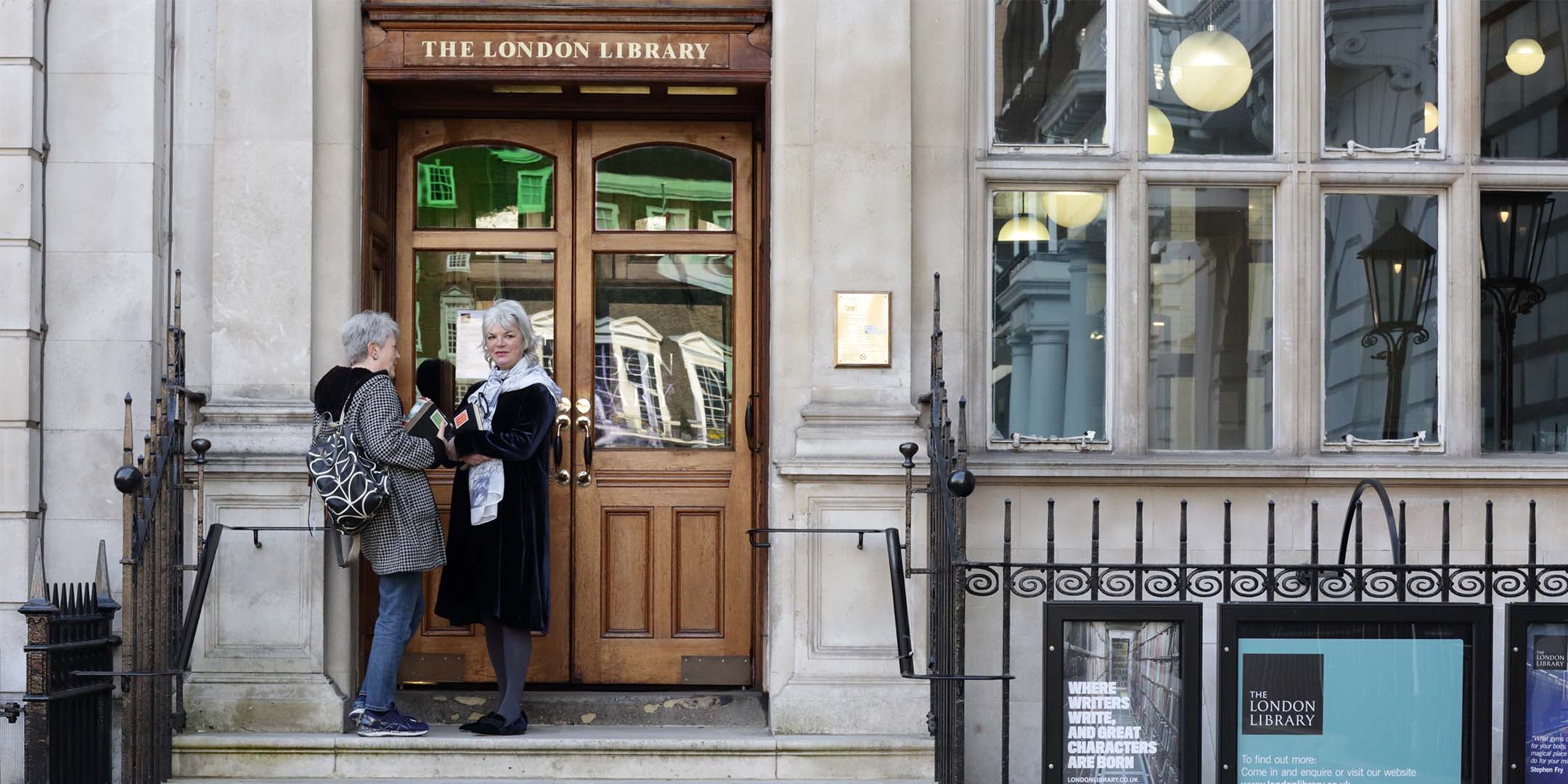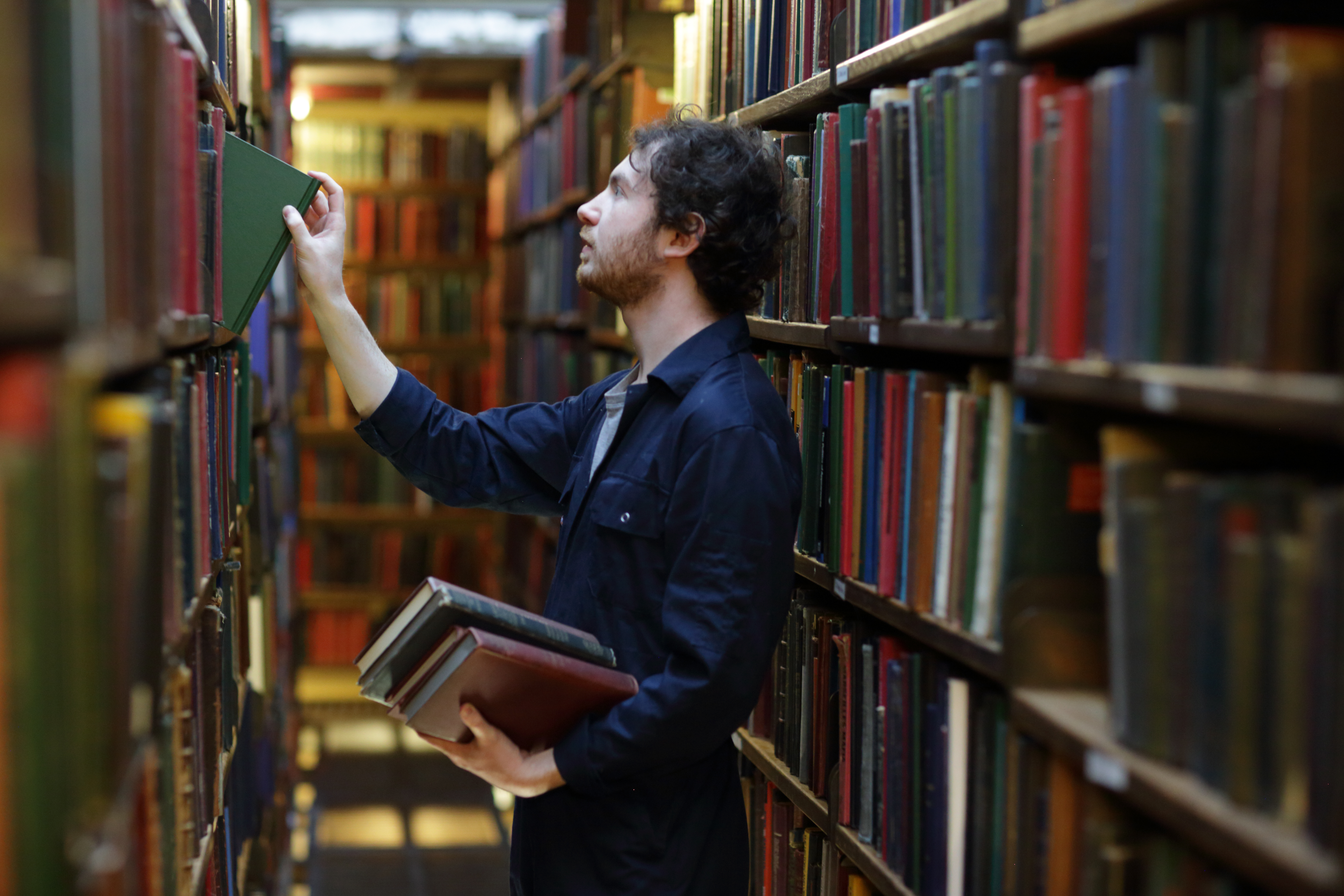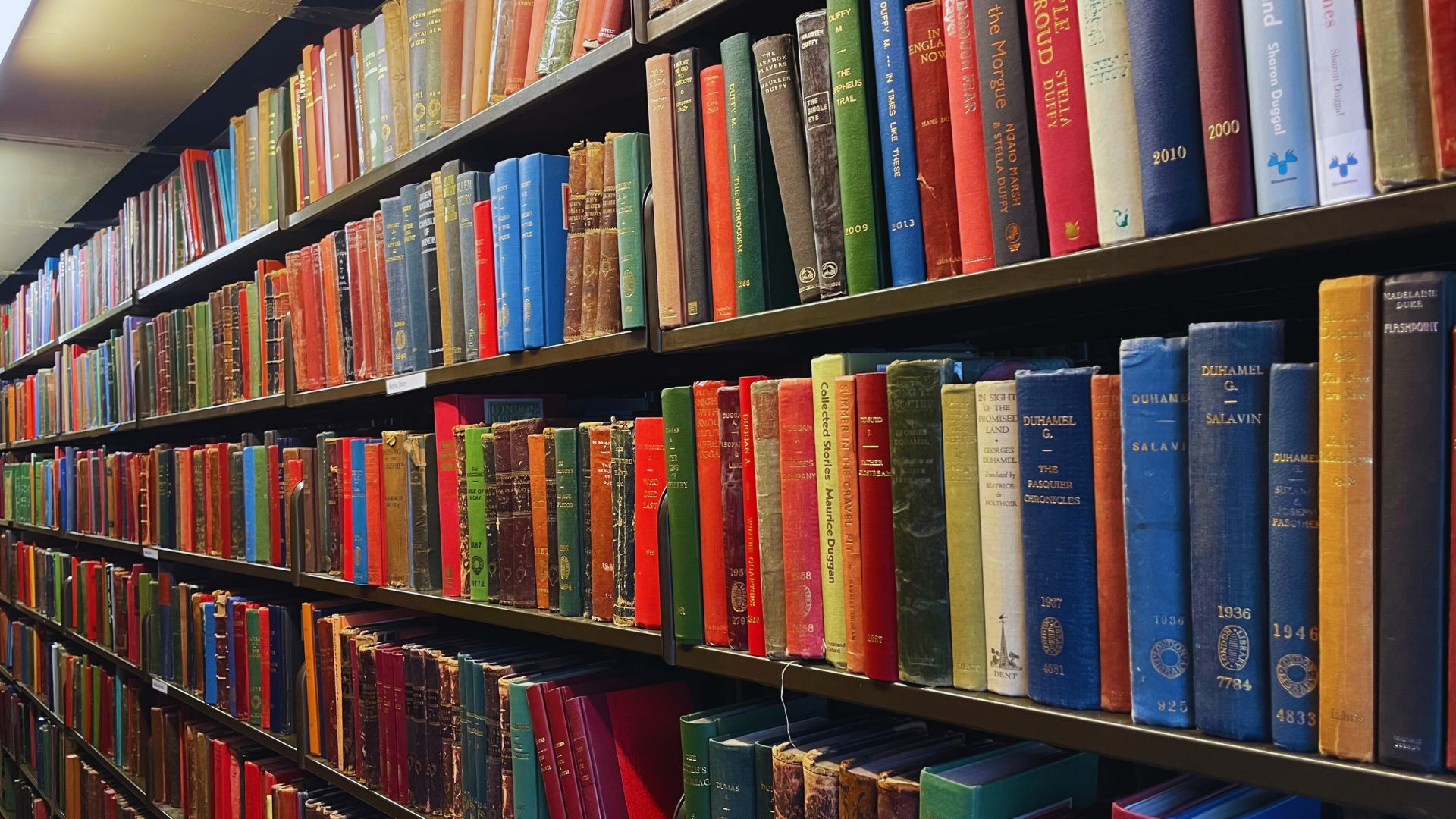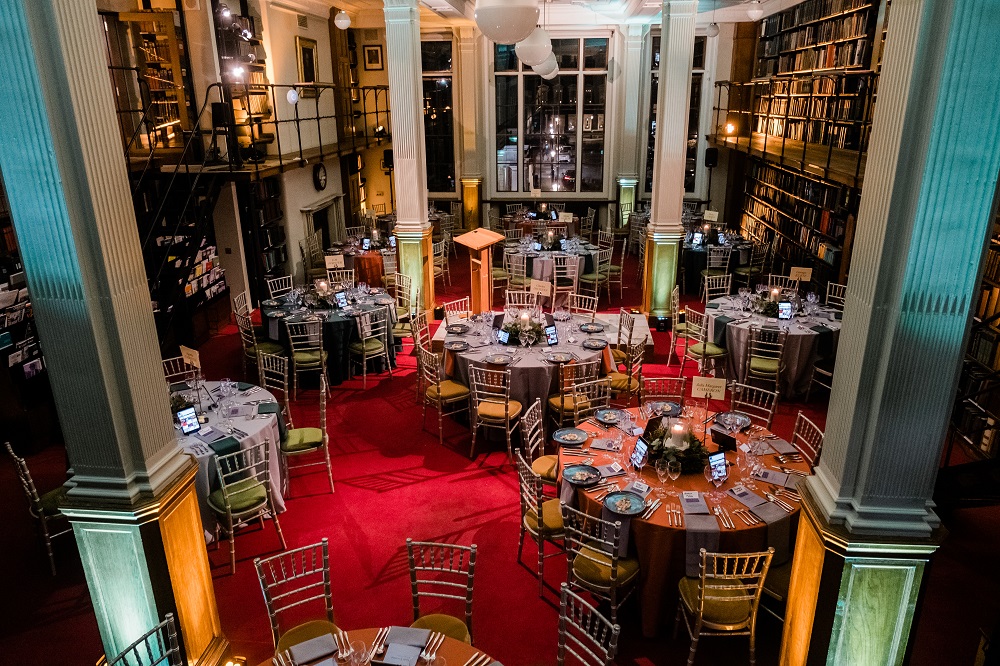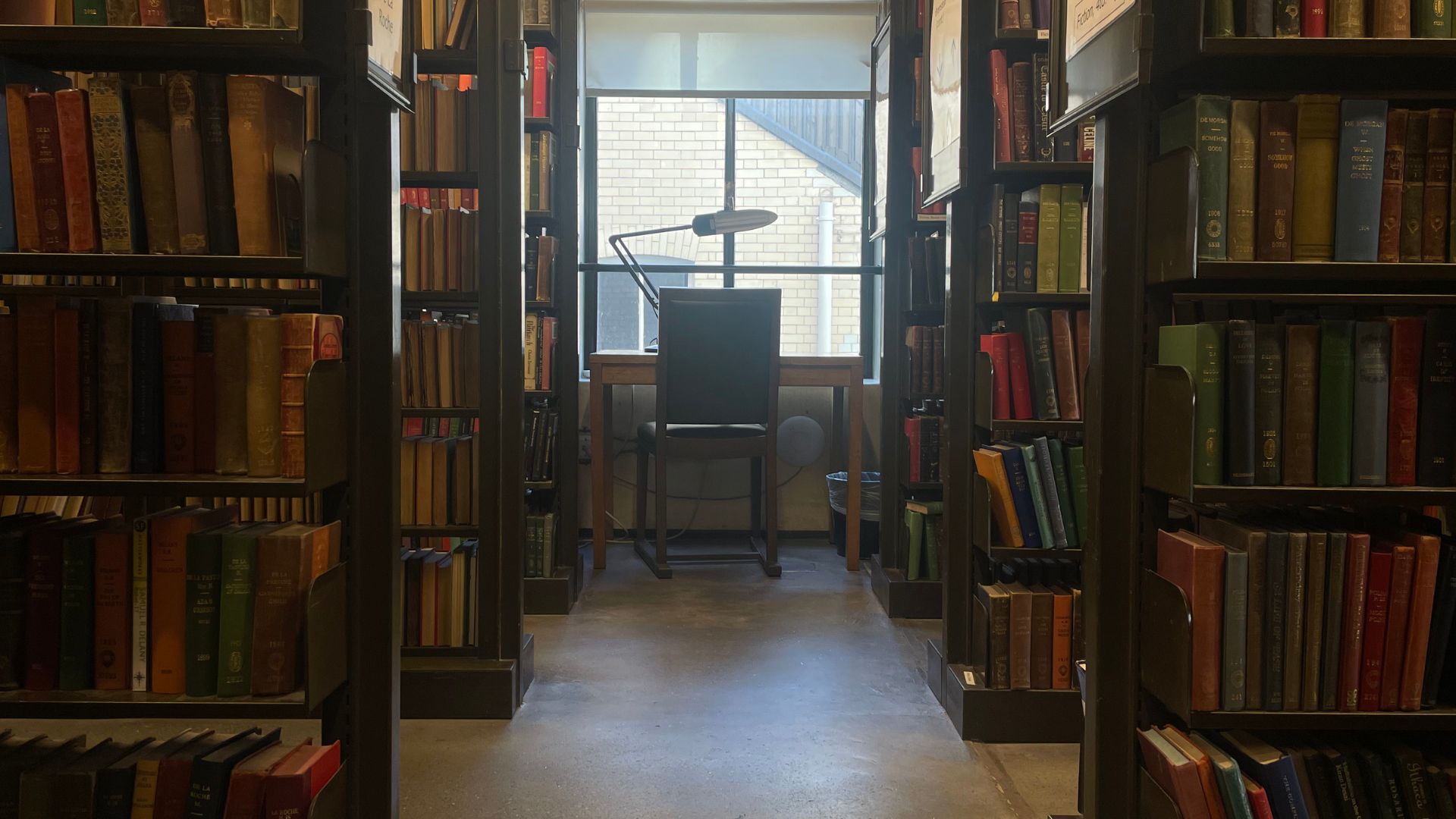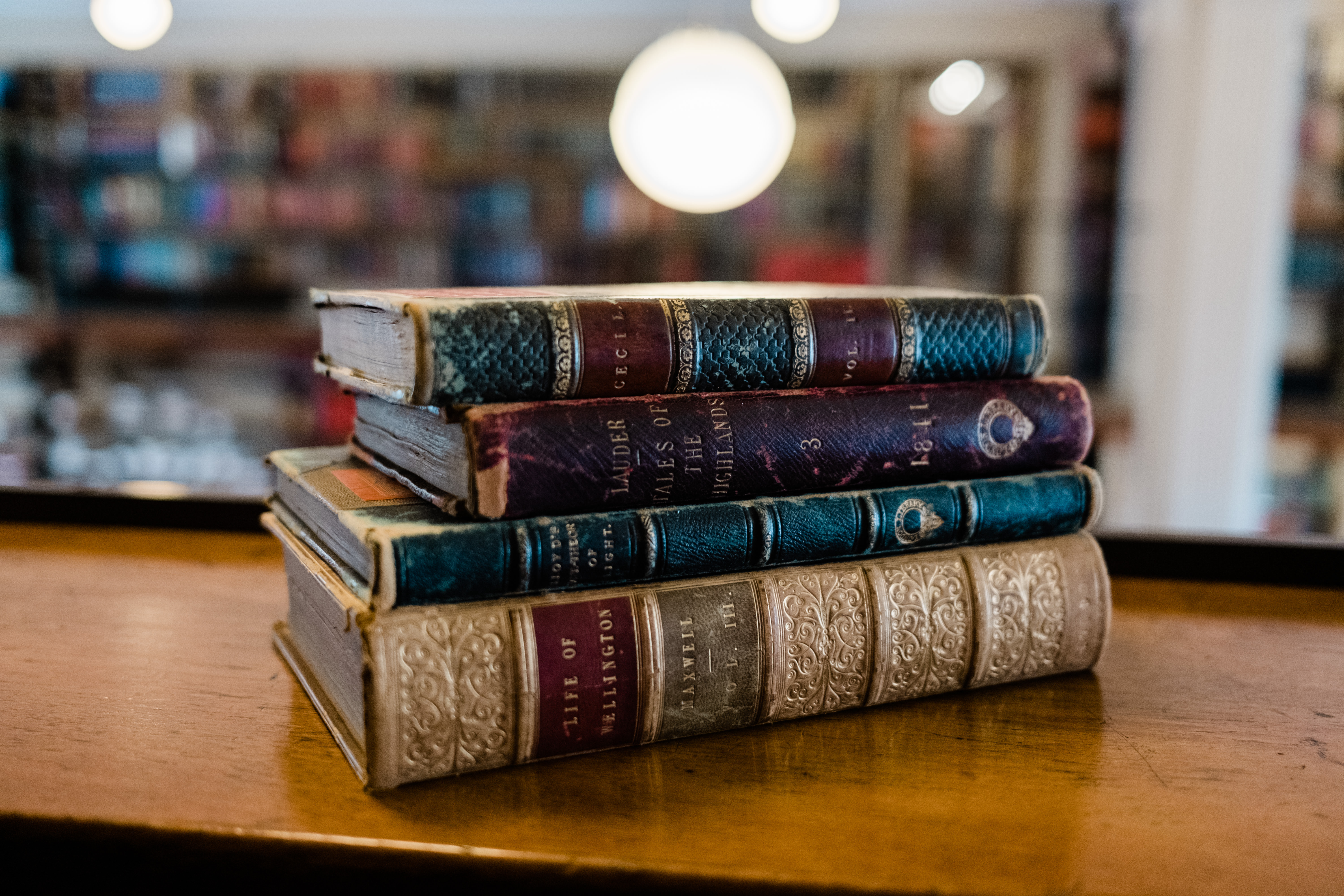The London Library Blog
A Tolstoyan at The London Library
- Font size: Larger Smaller
- Hits: 2169
- Subscribe to this entry
- Bookmark
By Claudia Ricci, Russian Acquisitions and Cataloguing at The London Library.
The longest serving Librarian (1893-1940) of The London Library, Sir Charles Hagberg Wright, was a distinguished Victorian polymath, who left a long lasting legacy in the history of the Library, its building and its collections. He was also an active member of the social and intellectual circles of his time, both at home and abroad. Having obtained a degree in Greek and Latin at Trinity College, Dublin in 1885, Wright pursued his studies further, while travelling around Europe to refine his language skills, which already included German, French and Swedish (his maternal grandfather was the Governor of the Swedish Royal Mint). In 1888 he spent almost a year in Saint Petersburg but, sadly, no first-hand account of his staying in the Russian capital exists.
However, judging from the titles he acquired for the Library and for his private collection and from the contacts he cultivated throughout his life, we can paint a picture of a young man, who nourished discreet sympathies for radical and nihilist circles and had a clear interest in the literary and philosophical personalities of his time. Among the distinguished Russians he must have met at the time, there were Maksim Gorky, who would later visit him in London (May 1907) and contact him requesting support for the cause of a revolutionary who had been imprisoned following the events of the 1905 revolution. Others included the Symbolist poet Valery Bryusov and the novelist and religious thinker Dmitry Merezhkovsky, who, having started off as a radical anti-monarchist and sympathiser of the Socialist-Revolutionary Party, would later became a staunch conservative and anti-Soviet from his exile in France (both men corresponded with Wright). All three authors are well represented in our collections, both in the Literature and Biography sections, but the Russian personality that must have struck Wright most at the time was certainly Leo Tolstoy, as the richness of our collections clearly proves.
We do not know how the two men came to meet or in what circumstances. In 1888 Tolstoy was already 60 years old, his fame as the greatest novelist in the Russian language was already established having published “War and peace” (1869), “Anna Karenina” (1877) as well as a wide range of plays, novellas and autobiographical works to great acclaim of the public and critics. Incidentally, it was during this period that he started to experience a change in his worldview and a more spiritual streak started to permeate his work – between 1884 and 1887 he published his first religious and philosophical tracts, What I believe, What then must we do? and On Life. These works, which were banned from publication in Russia, symbolically inaugurate a new age in Tolstoy’s life, the start of a spiritual journey, which would eventually lead him to excommunication from the Orthodox Church and a sort of internal exile, but which would also bring him immense popularity and great influence in Russia and abroad. Tolstoy’s moral tracts and pamphlets spanning all subject matters from pacifism to land reform, from advocating abstinence to the call for communal rural living, including his polemics against the death penalty and the role of the State and the Church as enslaving institutions, are extremely well represented in the Pamphlet collections of The London Library, a sign of the Librarian’s interest in Tolstoy and his ideas.
The English edition of Tolstoy’s letters in 2 vols. (Biog. Tolstoy, Leo) includes a brief letter that was sent by the venerable man to Charles Hagberg Wright in 1904 (April 22nd/7th May according to the Gregorian calendar). Writing in Russian Tolstoy thanks his friend in London for some books that he had been sent including one by Herbert Spencer and an autobiography of John Stuart Mill. He signs himself in English, “Leo Tolstoy”.
Another proof of their friendship is contained in Gusev’s Chronicle of Tolstoy’s life and work (in Russian -Biog. Tolstoy, Leo). The entry for 28th-30th August 1908 states that Charles H. Wright, erroneously identified as the Librarian of the British Library, paid a personal visit to Tolstoy at his country estate in Yasnaya Polyana on the occasion of the author’s 80th birthday. He delivered a congratulatory letter, which had been signed by more than 800 British intellectuals and social personalities of the time, among which featured the names of Bernard Shaw, H.G. Wells, Edmund Gosse and no doubt many other members of the London Library.
Following that memorable visit Wright wrote a piece for the Times (17thSep., 1908), where he described how he spent his day at Yasnaya Polyana in the company of “Russia’s grand old man”. He also takes the opportunity to criticise the “sorry state of affairs” in political and social matters (the Russian Duma had prohibited any celebrations of Tolstoy’s birthday due to his status of persona non-grata), as well as the weakness of the Russian Central Government of the time. He tells us that Tolstoy welcomed him as his “English friend” and they reminisced about the long walks that they had once taken together on a similar meeting many years previously. But the octogenarian was frail and feeble, so the meeting was rather short.
In another letter to the Times (dated May 23rd, 1908) Charles H. Wright had announced the creation of a Committee which would preside over the congratulatory letter mentioned above and the launch of a special “Tolstoy Fund” that would support the publication of a new English language popular edition of Tolstoy’s works. Cheques and postal orders were to be sent to the address of the Library or the nearby branch of Barclays bank, and Wright himself was the Hon. Secretary of that Committee.
From this announcement we gather that Charles H. Wright was not just a personal friend and a literary devotee of Leo Tolstoy, but he also worked hard to support and promote the publication of his works in England. In our Fiction and Literature sections we find several copies of Tostoy’s translations that bear Wright’s name on the title page, as in one volume of Tolstoy’s Diaries (Youth, London: J.M. Dent, 1917), where he was responsible for the preface, or in Father Sergius and other stories and Hadji Murat, which are edited by “Dr C. Hagberg Wright” (both published by Thomas Nelson, 1911 and 1912 respectively). In the Forged coupon (London: Thomas Nelson, 1911) his name is given at the end of a long Introduction, which covers Tolstoy’s biography and expounds on his philosophical thoughts. For these publications the editors chose translations of high quality, carried out by expert translators and followers of Tolstoy’s philosophy such as Alexander Sirnis, C.J. Hogarth and Louise and Aylmer Maude, despite the fact that Tolstoy had placed all of his copyrights in the public domain, effectively making it possible for anyone to translate and publish his works on a small budget.
Charles H. Wright’s initials can also be seen at the bottom of the long entry dedicated to Leo Tolstoy in the 11th edition of the Encyclopaedia Britannica, published in 32 volumes between 1910 and 1922. We know that around the time of the compilation of that article our then Librarian had sought out clarifications on Tolstoy’s philosophical thoughts from Vladimir Chertkov, a Tolstoyan and Russian exile based in Christchurch, who acted as Tolstoy’s official representative in England[1]. Incidentally, on August 26th 1920 we find a letter to the Times by our ever so considerate Librarian, who pleads with the British Government that Vladimir Chertkov’s son be allowed to visit his mother in England together with another follower of Tolstoy, Mr Perno, as they certainly should not be classed as revolutionaries or enemies of the nation. In 1931 Hagberg Wright’s name makes another appearance in the Times in connection with the Chertkovs: on December 25th 1931 he is recorded as their lawful attorney following the death of Anna Chertkova, wife of Vladimir and author of various works on religious sectarianism in Russia.
Charles H. Wright continued to be a promoter of Tolstoy’s legacy and his memory after the death of the author in 1910. He wrote brilliant reviews of some of his posthumous works (see Tolstoy’s Letters To His Wife in the Times of 17 Oct. 1913), he did not miss any opportunity to defend the reputation of Tolstoy, his heirs and his followers whenever a malicious rumour spread, as was the case with Tolstoy’s manuscripts, which were alleged to have caused a rift between the Tolstoy family and the above mentioned Vladimir Chertkov (see C.H.W.’s letter to the Times dated June 6th 1911). And, most importantly for us, he continued to add to the amazing collection of works by and about Leo Tolstoy for his beloved Library in St James’s Square.

